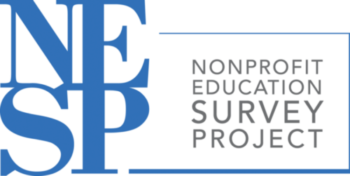What is the NESP team currently working on?
2023 – Nonprofit Recruiters
This year we shifted gears a little and are now investigating “the other side” of nonprofit employment. Specifically, we became interested in learning about the field of nonprofit executive recruiters, the work they do, the role they play, and the organizations they work for. To this end, we recently completed a survey project for which an initial report is now available.
We heard back from 93 recruiters and in the following summarize our approach and findings.
Nonprofit recruiters often work as generalists.
Many recruiting firms and their recruiters work across nonprofit mission sub-sectors, even across the three economic sectors. Further, many recruiters bring their own professional experience from beyond the nonprofit sector. These orientations and backgrounds have potential implications for how recruiters help nonprofits fulfill their value-laden expressive dimensions.
Nonprofit executive recruiters have significant experience. Most of the survey respondents had experience in multiple sectors and had a master’s degree or higher. Further, nearly half had over ten years of experience as an executive recruiter. These characteristics imply that executive recruiters are highly professionalized, which may influence their preferences for the profile of executives they recruit.
The nonprofit executive search field is loosely structured.
As we developed our survey sample, we identified no central affiliative association that connects the field of recruiters, and the majority of our respondents indicated that they had no affiliative membership. Further, the majority of respondents are operating following a proprietary approach to search and recruitment. Thus, evaluation of executive recruiter performance as a field may be challenging to isolate and understand.
Future publications (hopefully) are soon to come!
2021/2022 – Nonprofit Worker Experience
A second wave of survey data was collected in Summer of 2021. During this round of our project, seven schools participated. In addition to including questions on previous topics such as employability, acquired skills, and financial burden, this round of NESP asked participants about the impact of COVID-19 on their careers and their sector commitment.
In both surveys, we seek to understand the immediate impact of an altered work environment by 1) describing the changes nonprofit workers have experienced (e.g., changes in work hours, reductions in pay, layoffs, furloughs, altered work expectations, new work tasks) and 2) exploring the effect of workplace changes following COVID-19 on commitment to work in the nonprofit sector long-term.
Both the quantitative and qualitative components of this round of our project are being recognized as innovative, important, and timely and are receiving support through the RGK Center for Philanthropy and Community Service at the University of Texas at Austin and the Association for Research on Nonprofit Organizations and Voluntary Action [ARNOVA] annual President’s award (2020).
Importance of Understanding COVID-19’s Impact on Nonprofit Workers
We believe that COVID-19 has significant potential to impact nonprofit employees and their commitment to the sector given the stress that it places on nonprofits. This could have disastrous effects on the sector given that these organizations rely heavily on their human resources for the missions provision (Mesch, 2010; Walk, Schinnenburg, & Handy, 2014).
Given what we know about nonprofit sector commitment thus far, we are cautiously optimistic that the pandemic will not significantly diminish an individual’s long-term commitment to mission-related work. However, rather than merely hoping for good outcomes, this iteration of our project allows us to identify how the current environment is affecting nonprofit workers so that we can use our findings to help organizations attract and retain (or perhaps bring back) those workers as well as contribute a contemporary perspective on nonprofit sector commitment to further our theoretical understanding.
Particularly, we ask the following research question: How does the pandemic impact nonprofit workers and ultimately their commitment to the nonprofit sector? We are curious to know if changes such as altered work hours, reductions in pay, layoffs, furloughs, leave options, altered work expectations, and new demands for critical services impact how nonprofit workers reflect on their work in the sector. The nonprofit sector has been critiqued for giving insufficient attention to career ladders, labeled a “leadership development deficit,” (Landles-Cobb, Kramer, & Milway, 2015). In the face of ripple effects triggered by COVID-19, we identify an urgent need to understand how nonprofits can capitalize on the commitment of workers to fulfill their leadership and management roles.
In the news:
- Marlene Walk introduces the project in a discussion called “Real Talk and Big Ideas webinar on nonprofit human resources hosted by Northern Illinois University. Check out the recording here, Sept 2021.
- For nonprofits moving forward requires looking back, Charitable Advisors, July 6, 2021
- Analysis: Nonprofit Organizations Across the Country Are in Crisis, March 25, 2021
- Student researchers gain experience, encouragement through studying COVID-19’s impact on nonprofit workers, March 22, 2021
Publications – Reports/Articles:
- Nonprofit Executive Recruitment Report (June, 2023)
- The Time Is Right for Organizational Learning, Stanford Social Innovation Review, September 2021
- States of COVID-19: Synthesis of State-level Nonprofit Reports on the Impact of the COVID-19 Pandemic, March 2021
- 7 Reports to participating schools in the NESP 2020 data collection, March 2021
Publications – Peer-reviewed Articles:
- Pause don’t panic: Exploring COVID-19 as critical incident for nonprofit workers, Review of Public Personnel Administration DOI: https://doi.org/10.1177/0734371X221149128
- How are nonprofit workers doing? Investigating the personal and professional impact of COVID-19, Canadian Journal of Nonprofit and Social Economy Research (CJNSER), 13(3), 1-17. DOI: https://doi.org/10.29173/cjnser565
- COVID-19 as a nonprofit workplace crisis: Seeking insights from the nonprofit workers’ perspective, Nonprofit Management and Leadership.
Twitter @NESP_Careers
References
Landles-Cobb, L., Kramer, K., & Milway, K. S. (2015). The nonprofit leadership development deficit. Stanford Social Innovation Review.
Mesch, D. J. (2010). Management of human resources in 2020: The outlook for nonprofit organizations. Public Administration Review, 70(S1), S173.
Walk, M., Schinnenburg, H., & Handy, F. (2014). Missing in Action: strategic human resource management in German nonprofits. Voluntas, 25(4), 991-1021.
